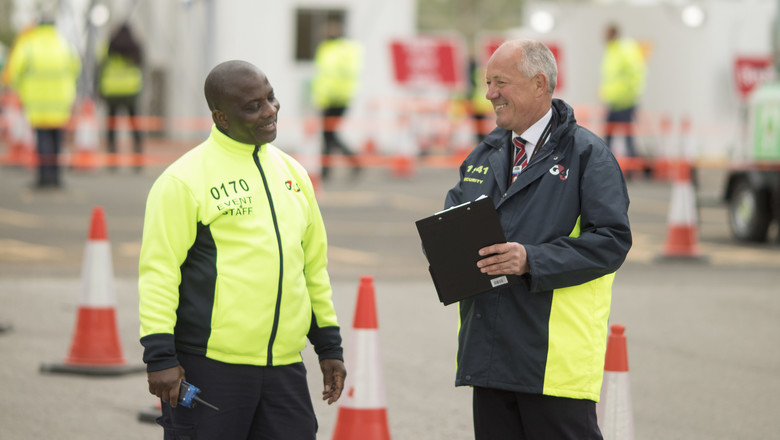Recruitment agencies in hot seat over “mini umbrella company” fraud scheme
More than 40,000 people from the Philippines have been recruited to front British companies as part of a scheme costing the UK “hundreds of millions of pounds” in lost taxes, the BBC has reported. However, the scheme could never have happened if targeted British directors and recruitment agencies had not taken part.
How did the mini umbrella fraud scheme happen?
BBC’s File on 4 programme found that more than 48,000 “mini umbrellas” have been created in the UK in the past five years, each following a particular pattern.
The companies are originally incorporated with a British director recruited via private groups on Facebook. They resign as directors after a short period of time and a Filipino director is appointed in their place. The fact that the director is from the Philippines makes it more complicated for the HMRC to pursue these companies and directors.
In one case, a British director set up a handful of companies at the same time. Their only job was to upload letters received by post from HMRC and Companies House to an online portal run by a company called WRS Formations.
Shortly after that, the British director would resign as the director of the six businesses and start all over again. They would be paid £150 for “fronting” the six companies.
On the day they resigned, a Filipino director would be appointed to “front” these companies.
How was the scheme discovered?
A temporary worker hired through an employment agency called HR GO had been issued a payslip that had the name of a company on it not related to the agency or the end-hiring company. The worker looked up the said company on the Companies House website as he was curious. He found that got the company had only been established a month before he had started his job. That set off alarm bells.
In a nutshell, the scheme’s mini umbrella companies, used by recruitment agencies, were allegedly exploited by taking advantage of the government’s Employment Allowance – an annual discount of £4,000 per company on National Insurance contributions, according to the BBC report. The allowance was meant to encourage companies to take on more workers, but in such cases have been exploited, which could now seriously backfire on UK recruitment agencies if the incentive would be scrapped.
“Recruitment agencies exploit the allowance by employing temporary workers through a series of mini umbrella companies – or “MUCs”. Each individual MUC has only a small number of workers and qualifies for the tax relief. These kind of arrangements can cost the taxpayer hundreds of millions in lost tax revenue a year,” said the report.
Which sectors are targeted by dubious mini-umbrella companies?

Covid test centres were targeted by these schemes. Some staff working at centres run by G4S, for example, have been employed by subcontractors in this kind of scheme. As of late January, G4S was operating 131 LTSs, 18 Regional Testing Sites (RTS), and 96 Mobile Testing Units (MTU).
G4S said that when the mini umbrella scheme had come to its attention the HMRC was notified.
The company said it was taking steps to ensure that all agency workers were employed directly and not via a subcontractor.
The big blow to the recruitment sector is that G4S works with employment agencies which are Recruitment and Employment Confederation accredited and members of the government’s Crown Commercial Service (CCS) Framework.
What have been the repercussions?
According to the BBC, the HMRC said it was using both its criminal and civil powers to challenge what it called “MUC fraud” – and recently deregistered more than 22,000 mini umbrella companies thought to be involved in such schemes.
It was reported that HMRC has made a number of arrests and taken steps to recover unpaid tax from businesses that knew or should have known about fraud in their supply chain.
How could the mini umbrella scam have been avoided?
Recruitment agencies that wear the Recruitment and Employment Confederation accreditation badge of honour should do their due diligence on any sub-contractors or umbrella companies before conducting business with them. To avoid this crucial step could be a huge reputational risk, according to Nick Woodward, CEO of recruitment technology company ETZ.
Woodward said the latest mini umbrella fraud cases reflect badly on recruitment agencies who should take responsibility for their supply chain and how it could impact contractors, end-clients and taxpayers.
“It beggars belief that recruitment agencies use fly-by-night umbrella companies with no compliance checks whatsoever. This example reported by the BBC sounds like buck-passing. G4S in good faith has used HR GO as an REC member. What compliance checks have HR GO performed on their suppliers i.e. the umbrella companies?
It’s time for everyone in the supply chain to take responsibility to stamp out tax avoidance and tax evasion. Turning a blind eye to suspicious practices and then blaming HMRC is a cop-out,” said Woodward.



UK is extremely naive to think Philippine Crime Syndicates are not involved. They are. As a person defrauded by them out of 40 years work & business you mustn’t feel sorry for them.
They will take whatever is on offer & deliberately target high exchange rate to Peso countries.
You must deal with it as trans national organized crime. Hold every single name accountable prosecute them & ban them from ever entering the UK. This will dissuade them. The cartel operators know this full well.